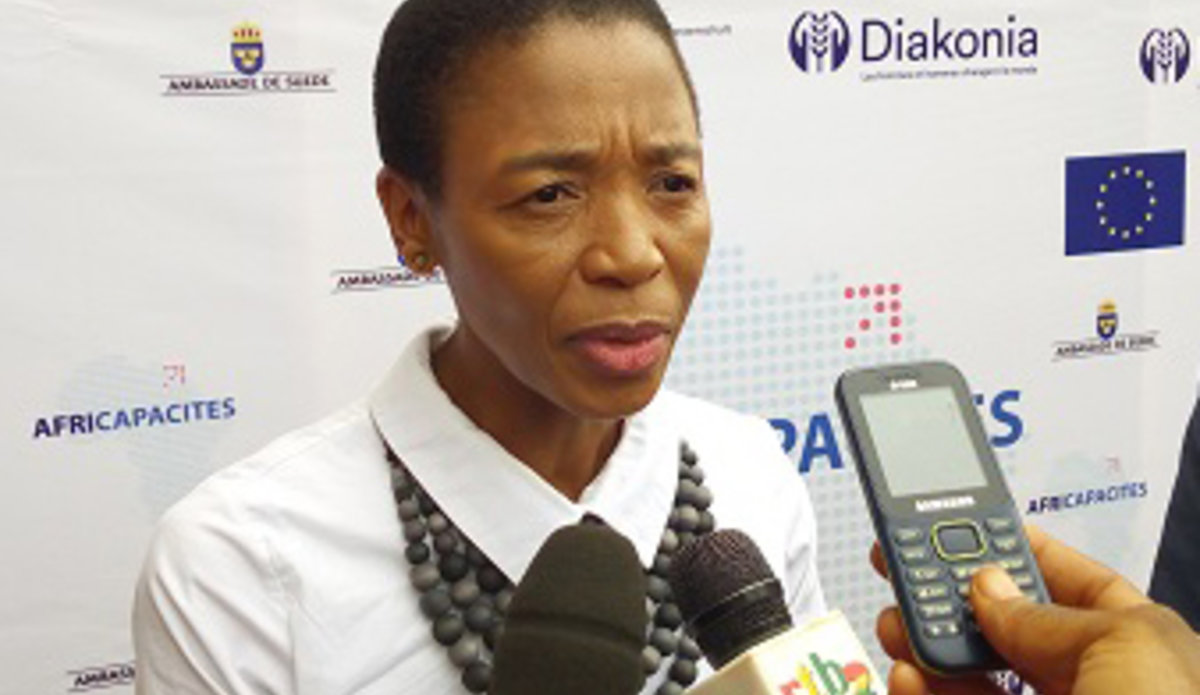“The response must be multidimensional, multisectoral and regional”
Mrs. Metsi Makhetha, Resident Coordinator of the United Nations in Burkina Faso since 2016, talks about the security and humanitarian situation in Burkina Faso. She also talks about the support of the United Nations and the international community to the Burkinabe government. Interview!
What is your assessment of the situation in Burkina Faso?
Burkina Faso is currently experiencing a difficult and complex situation. The security context leaves no respite, with very frequent attacks against the defense and security forces, public officials, schools, health centers, customary chiefs, Imams and, recently, churches, pastors, Christian priests.
I take this opportunity to reiterate all our compassion with the families who have been bereaved by the attacks of the armed groups and our solidarity with the people of Burkina Faso.
By its impacts, this situation may delay the country’s progress towards its goals of development and lasting peace. It undermines social cohesion and has displaced thousands of families, causing a humanitarian emergency that the country has never experienced. The number of displaced people has tripled, from 50,000 in early 2019 to more than 170,000 currently.
The United Nations is working with partners and the humanitarian community, and, remains strongly committed to the government to provide the necessary assistance to the most vulnerable people. However, the rapidity of the deteriorating conditions has surprised many actors.
With regard to the United Nations support, an inter-agency mission requested by the Secretary-General took place from 19 to 25 February under the leadership of the Special Representative for West Africa and the Sahel, Mohamed Ibn Chambas. What was its purpose and what are the results and recommendations?
The Secretary-General wanted the United Nations to adapt and strengthen the whole system support to provide an adequate and integrated response in the difficult context I have just described. Obviously, the answer must be multidimensional and multi-sectoral.
It is a question of readjusting the framework of our interventions, defined jointly with the government according to the priorities of the country and which is part of the 2030 agenda, with for main objective - to support effectively the march of the country towards a development and a sustainable peace.
Through the inter-agency mission we also want to translate the core of the system’s reforms in the field in particular, an approach aiming to act both on reducing the humanitarian needs while strengthening the synergies with the development actions and the promotion of a sustainable peace, rooted in respect for rights.
Moreover, this approach had already been identified as an essential accelerator for the effective implementation of the priorities defined in the country’s reference framework, the National Program for Economic and Social Development (PNDES 2016-2020) and to enable the country to implement these ambitions by 2030.
The context has changed so we respond differently to current issues. The main recommendations of the mission were to reinforce ourselves, to adapt our working methods by projecting an additional presence on the ground, in order to support more adapted responses to local issues.
Of course, the commitment to social cohesion and political stability as led by Ibn Chambas remains paramount, because the country is in the process of preparing the 2020 elections.
What is the top priority today to deal with this situation?
The restoration of security conditions is essential for social tranquility, the return of thousands of displaced families, the reopening of schools and the good functioning of the state through these different services. The government has the means to deal with it but the situation is complex, the response remains multidimensional, cross-border and regional.
Currently the country is facing a humanitarian emergency that requires a quick and immediate response for both, the most vulnerable people and the host communities. We have – the United Nations with the humanitarian community and the government- launched a response plan in February 2019. The plan requests US $ 100 million to support 1.2 million people in need. This plan is now funded at less than 50%. Yet the challenges on the ground are steadily increasing.
The response of the system should be fast, and it must also remain consistent. This is an opportunity for us to implement systemic reforms as adopted by all member states through the General Assembly. But the results and conditions of our engagement remain a mutual and shared responsibility; United Nations, government and partners [development / humanitarian and peace and security].
We can congratulate ourselves that Burkina Faso’s partners have responded to the challenges and are coordinating closely. The recent visit of the Security Council also underlined the international solidarity that will lead to an effective assistance.
 UN
UN


